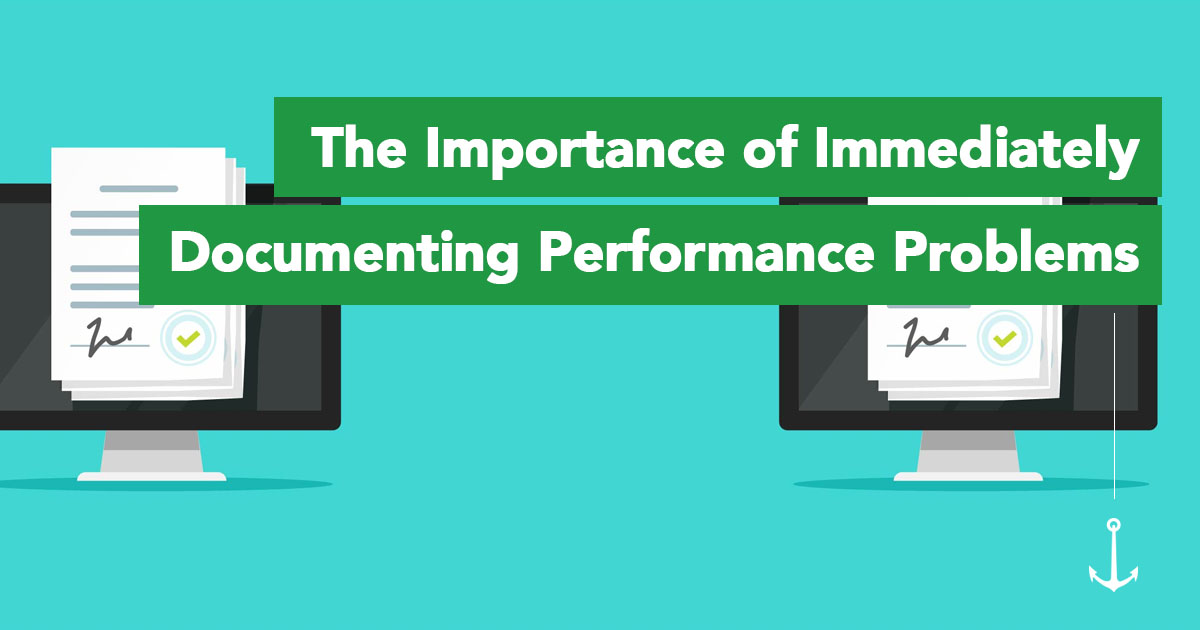Answer: Discipline should reflect the severity of the behavior, attempt to correct it, and be applied consistently. You’ll want to consider how you addressed certain behaviors in the past and the precedent you want to set for the future. For instance, if you jump straight to a final warning when a certain employee is an hour late to work, but let another employee come in late regularly without so much as a written warning, you’re setting yourself up for trouble.
Question: What are some typical examples of employee discipline? Are there any you recommend?
Topics: documentation, discipline
The Importance of Immediately Documenting Performance Problems
The importance of documenting performance problems as they occur cannot be overstated. Although this requires meeting with the employee and discussing the issue, which will almost certainly be uncomfortable, it’s your best defense to a wrongful termination claim should the employee feel litigious after termination.
Too many employers rely on the concept of employment at-will to protect them, when the reach of this concept is actually quite limited. The problem is that if an employer has little to no documentation and relies on at-will employment—and the theory that legally no reason is required—the terminated employee, their attorney, and possibly a jury of their peers will fill the blank with an illegal reason. Although you may be within your rights to terminate “for no reason,” it’s a dangerous position to take.
Topics: teams, hr, documentation, termination, discipline
What You Need to Know Before Disciplining or Terminating an Employee
The prospect of corrective action or termination makes a lot of managers nervous. That’s understandable. For employees, being disciplined or losing their job can be anything from moderately embarrassing to financially devastating, but it’s rarely a happy occasion. For the employers, these actions always come with some risk, and there are plenty of legal danger zones an employer can end up in if corrective action isn’t done properly.
Topics: teams, employers, hr, termination, discipline





